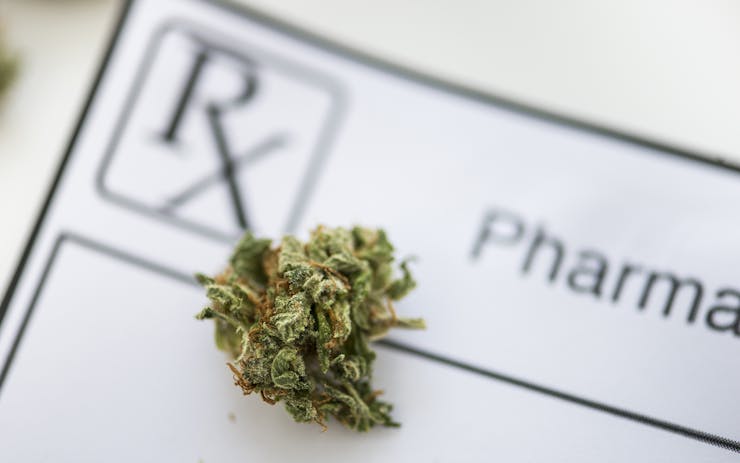Can legalizing cannabis fight the problem of opioid addiction and fatal overdoses? Two new studies in the debate suggest it may.
Medical marijuana legalization led to a 6% drop in opioid prescriptions to Medicaid patients. Adult-use legalization led to an additional 6% decrease.
Cannabis can relieve chronic pain in adults, so advocates for liberalizing marijuana laws have proposed it as a lower-risk alternative to opioids. But some research suggests cannabis may encourage opioid use, and so might make the epidemic worse.
The new studies don’t directly assess the effect of legalizing marijuana on opioid addiction and overdose deaths. Instead, they find evidence that legalization may reduce the prescribing of opioids. Over-prescribing is considered a key factor in the opioid epidemic.
Both studies were released Monday by the journal JAMA Internal Medicine.
Medicaid Patients: 6% Fewer Opioids
One looked at trends in opioid prescribing under Medicaid, which covers low-income adults, between 2011 and 2016. It compared the states where cannabis laws took effect versus states without such laws. The comparison was done each quarter, so a given state without a law at one point could join the other category once a law kicked in.
Results showed that laws that let people use cannabis to treat specific medical conditions were associated with about a 6 percent lower rate of opioid prescribing for pain. That’s about 39 fewer prescriptions per 1,000 people using Medicaid.
And when states with such a law went on to also legalize cannabis use by all adults, there was an additional drop averaging about 6 percent. That suggests the medical marijuana laws didn’t reach some people who could benefit from using cannabis instead of opioids, said Hefei Wen of the University of Kentucky in Lexington, one of the study authors.
Medicare: 14% Fewer Daily Opioid Doses
The other study looked at opioid prescribing nationwide for people using Medicare, which covers people 65 years or older and those with disabilities. Every year from 2010 through 2015, researchers compared states with a medical marijuana law in effect to those without one. Fourteen states plus the District of Columbia had such a law from the beginning of that time; nine other states joined them during the years the study covered.
Researchers found that Medicare patients in states with medical cannabis dispensaries filled prescriptions for about 14 percent fewer daily doses of opioids than those in other states. Patients in states that only allowed them to grow pot at home showed about 7 percent fewer doses.
‘Hard To Ignore’ Evidence
W. David Bradford, an economist at the University of Georgia in Athens who’s an author of the second study, said the results add to other findings that suggest to experts that cannabis is a viable alternative to opioids. The weight of that evidence is “now hard to ignore,” said Bradford, who said he thinks federal regulations should be changed to allow doctors to prescribe marijuana for pain treatment.
The two studies have some limitations, Dr. Kevin Hill of Harvard Medical School and Dr. Andrew Saxon of the University of Washington in Seattle wrote in an accompanying editorial.
For one thing, they don’t reveal whether individual patients actually reduced or avoided using opioids because of the increased access to cannabis. The findings in Medicaid and Medicare patients may not apply to other people. And the results may have been skewed by some characteristics of the state populations studied, they wrote.
They called for states and the federal government to pay for more studies to clarify the effect of marijuana use on opioid use, saying such research is needed for science to guide policy-making.





